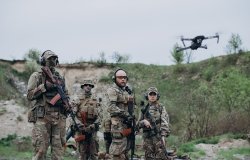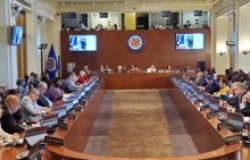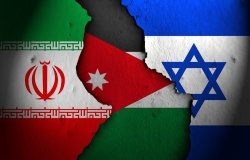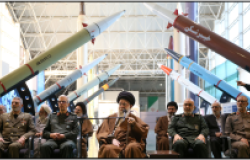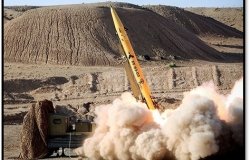The Challenge of Reconciling Nuclear Energy and Nonproliferation under the NPT
with Lawrence Scheinman, Distinguished Professor, Monterey Institute of International Studies
Overview
This meeting, jointly sponsored by the Center's Division of International Studies and the Los Alamos National Laboratory, was another in the ongoing Nonproliferation Forum series.
The Nuclear Non-Proliferation Treaty, the landmark arms control agreement negotiated in 1968, was based on a core bargain between nuclear and non-nuclear weapon states. Under Article VI, the declared nuclear powers committed themselves to the goal of nuclear disarmament; while Article IV guaranteed signatories access to peaceful nuclear technology. These two provisions have been the most persistently contentious issues at the periodic NPT review conferences.
Revelations about Iran and North Korea are at the center of growing concern about the misuse of the technology transfer provisions of Article IV by cheating within the NPT treaty regime – that is, taking advantage of Article VI to acquire technology, and then exercising the right under Article X to withdraw from the NPT on 90 days notice and move toward weaponization. North Korea, which long had a clandestine weapons program under a civilian energy guise, withdrew from the Treaty in April 2003.
The core issues pertaining to Article IV are how to define the nuclear fuel cycle and whether all NPT signatory states have a right to acquire that technology. The two main elements of the nuclear fuel cycle are: uranium enrichment technology (which can produce both low-enriched uranium (LEU) for civilian reactors and high-enriched uranium (HEU) for weapons) and reprocessing technology (which extracts plutonium, a weapons-grade fissionable material, from the spent fuel of nuclear reactors). In the mid-1970s, the Nuclear Suppliers Group, now numbering over 40 states, agreed to exercise restraint in the transfer of fuel cycle technologies. But signatory countries – notably Iran in the current crisis over its nuclear program – assert a right to this technology under the NPT. Attempts to withhold or deny this technology are characterized as discriminatory.
Scheinman argued that any attempt to renegotiate the NPT to address the Article VI is highly problematic. The outcome of such an exercise would be inherently uncertain, as signatory states would have to go through a new process of ratification. Moreover, "denial without adequate incentives," Scheiman stated, "is a path not to be taken." Therefore, he proposed a defacto solution outside the formal NPT framework through the creation of "nuclear fuel banks," repositories for fissile material under multinational control. This proposal has two advantages: it "addresses most of the concerns that could arise with respect to assurance of supply; [and] puts states that are reluctant to forego national sensitive fuel cycle activity in the position of having to provide a politically credible reason to other states as to why they have to pursue a full national nuclear fuel cycle."
Thank you for your interest in this event. Please send any feedback or questions to our Events staff.
